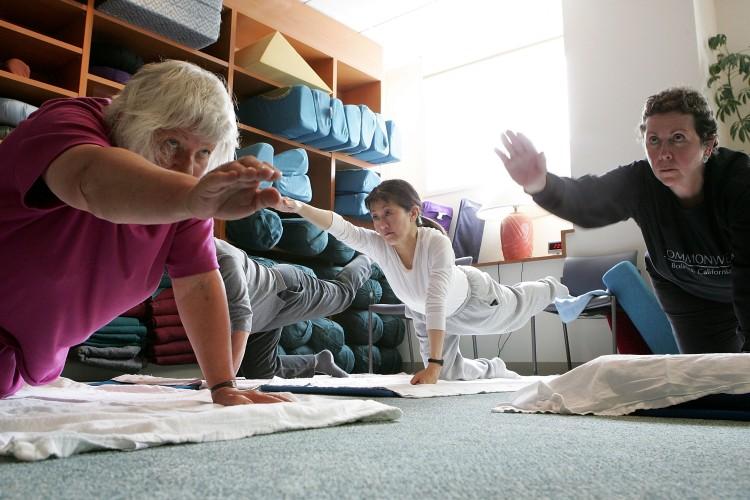
Women participate in a yoga class for cancer patients at the UCSF Comprehensive Cancer Center in San Francisco, California, US. Health professionals in the UK should encourage cancer patients to be more active, according to Macmillan Cancer Support. Justin Sullivan/Getty Images
Health professionals are failing to advise cancer patients that exercise helps recovery, according to new research from Macmillan Cancer Support, a leading UK charity.





